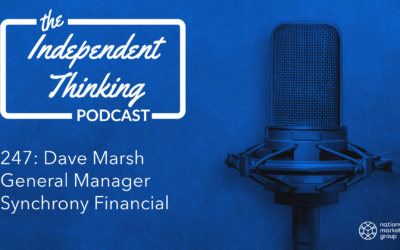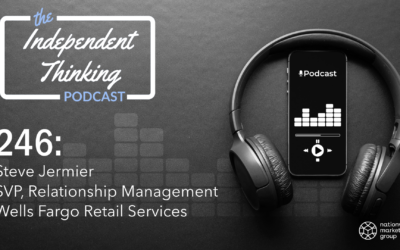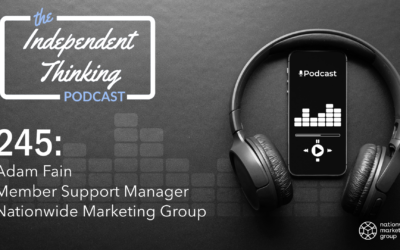In 2023, the retail sector found itself navigating stormy waters, buffeted by the impacts of continued federal rate hikes. In such testing times, it becomes all the more imperative to think innovatively to both secure customer loyalty and safeguard the financial health of your business.
One standout solution that warrants serious consideration amidst these challenges is Voice Over Internet Protocol. VoIP is not a new technology by any stretch – it was first introduced back in 1995 – but it’s one that is not utilized by all Independent retailers. But, given the fact that alternate solution costs continue to increase, perhaps it’s one that needs to be looked at a little more seriously and intently by this channel.
Explained in its simplest form, VoIP is a technology that allows you to make voice calls over a broadband internet connection. Rather than requiring a landline, hardwired connection, VoIP services enable you to connect with anyone who has a phone number via nontraditional devices. So, computers can call landline phones, other computers, special VoIP phones or landlines that are connected to a VoIP adapter.
The benefits of VoIP are vast, offering a lifeline for businesses seeking to trim expenses and enhance operational flexibility. Let’s dive into five specific advantages of the technology.
1. Cost Efficiency
VoIP presents a significantly lower cost alternative compared to traditional telephone systems. It allows businesses to cut down on communication expenses without compromising quality.
2. User-Friendly Interface
Its intuitive software and the availability of live and recorded training make it easy for staff to adapt swiftly. This accessibility ensures a seamless transition for businesses integrating VoIP into their operations.
3. Scalability
VoIP systems are inherently scalable, effortlessly accommodating business growth without the need for extensive reconfiguration or infrastructure overhauls.
4. Enhanced Flexibility
The ability to transfer calls to cell phones empowers employees to stay connected without being tethered to a physical storefront, providing a new level of flexibility in customer engagement.
5. Call Analytics
Businesses can leverage comprehensive call analytics provided by VOIP systems, gaining insights into call duration and unanswered calls, fostering informed decision-making.
Impact on POTS Lines:
The landscape for Plain Old Telephone System (POTS) lines has undergone significant shifts, primarily driven by the rise of VOIP technology and regulatory changes like the FCC’s decision in August 2022 (FCC order 19-72A1) to no longer support the maintenance of the old copper wires used by traditional telephone technology. The decision, which effectively mandated consumers and businesses alike to begin utilizing newer voice calling technology, has led to increased phone prices over the past year and a half, signaling a shift away from traditional telephony infrastructure. So, the cost for using outdated technology goes up, while fewer people and businesses rely on that now-more-expensive technology.
If you find yourself clinging to your POTS line because it’s something you’re comfortable with or you’d rather just not deal with the headache of having to make the switch, consider that you could be leaving more and more money on the table each year because of those rising costs.
If you are looking to make the switch, but you’re not sure where to start, here are a few strategies to consider:
1. Evaluate Existing Services
Seek quotes for all services incurring monthly expenses, including phone, internet, security, etc. Explore potential alternatives or renegotiation opportunities to reduce overhead.
2. Assess Your POTS Lines
For essential services reliant on POTS lines (such as safety, security, and some legacy devices like fax machines and older point-of-sale systems), explore migrating to cost-effective solutions without compromising functionality.
3. Explore IoT for Efficiency
Consider leveraging the Internet of Things (IoT) for vehicle tracking to enhance operational efficiency and cost-effectiveness, enabling better monitoring and management of delivery and service vehicles.
Be proactive by reassessing your operational strategies. Embracing VoIP technology, reassessing reliance on POTS lines and exploring IoT solutions are just a few small steps you can take toward optimizing your expenses while ensuring operational resilience in the retail world.




